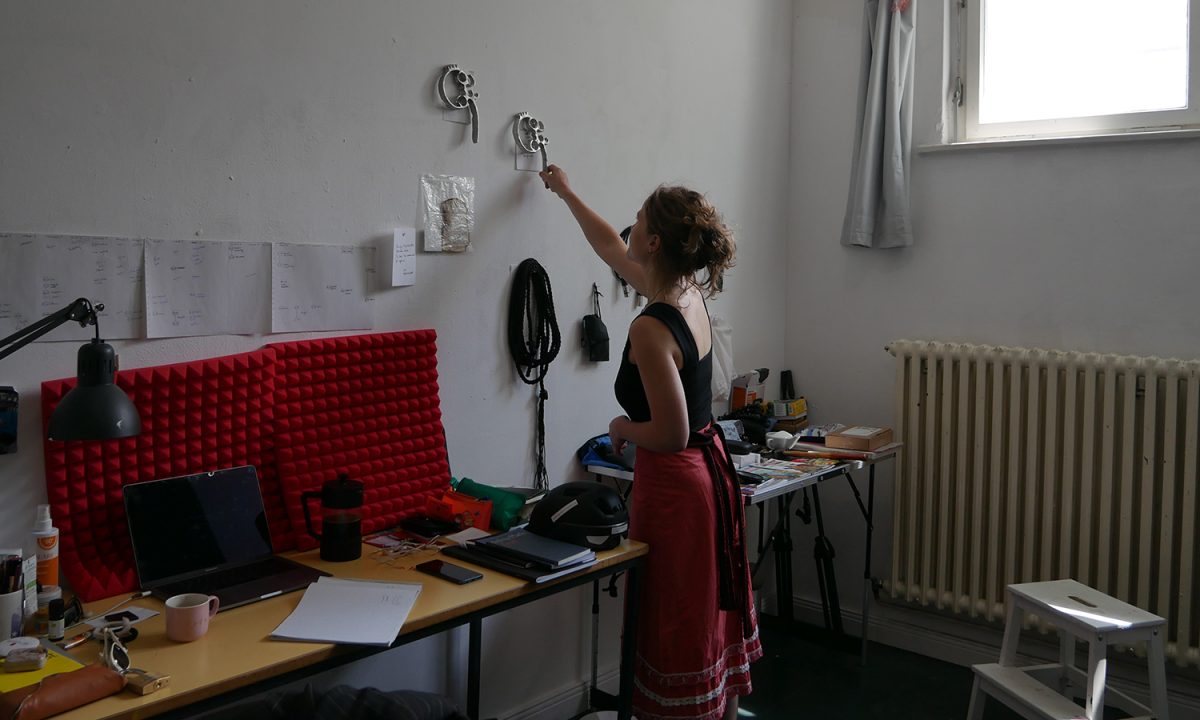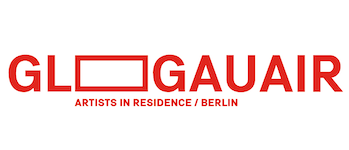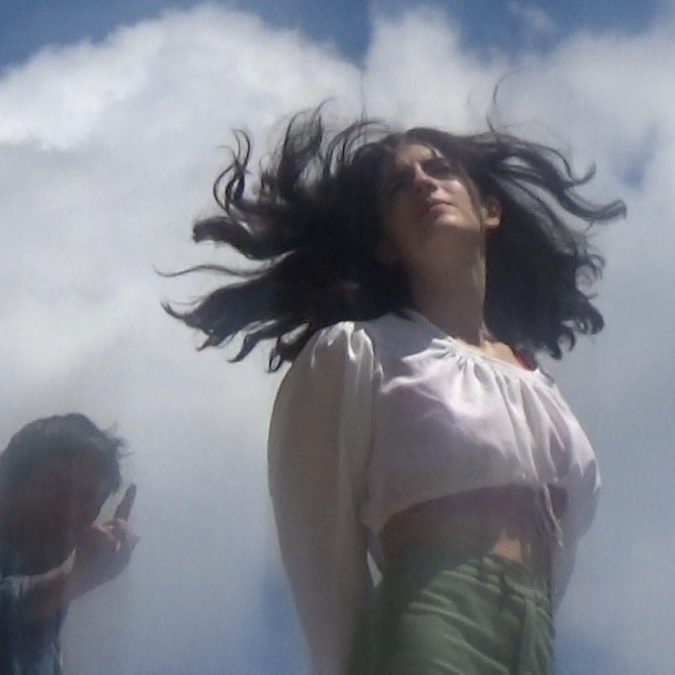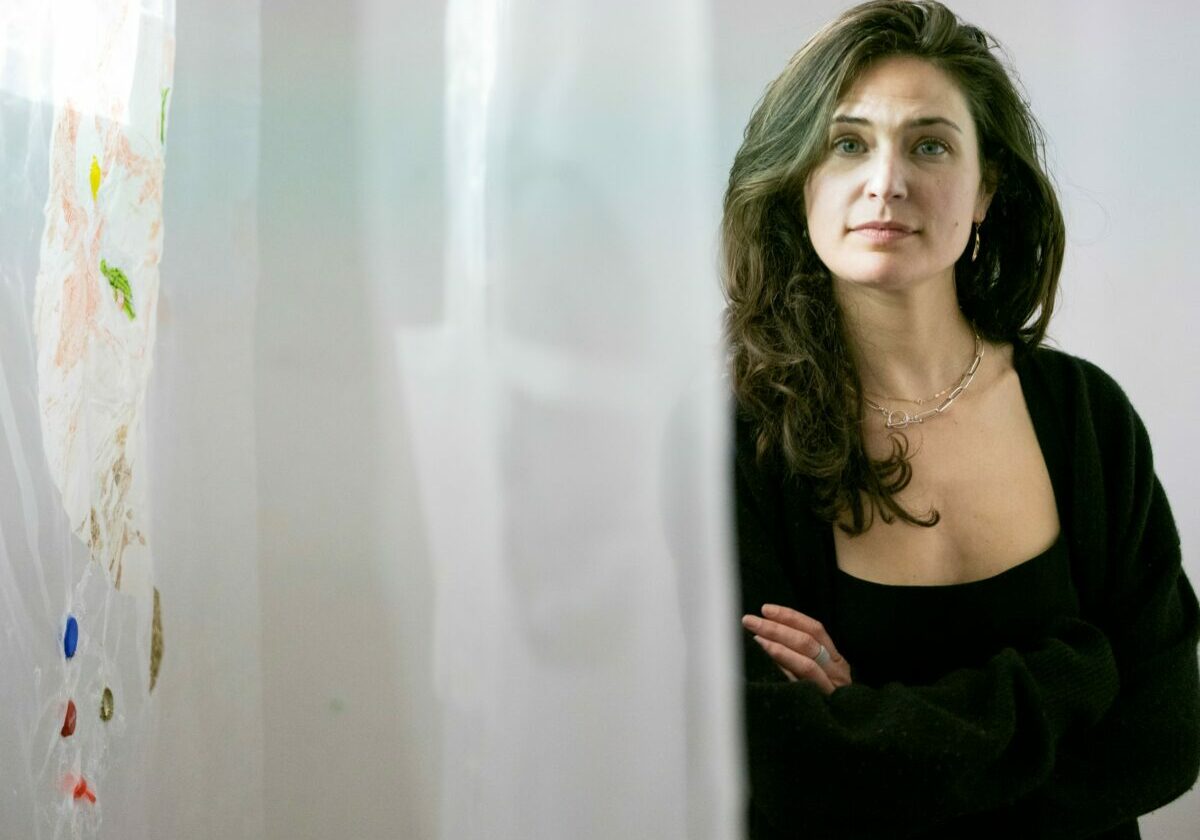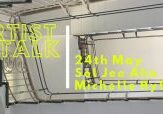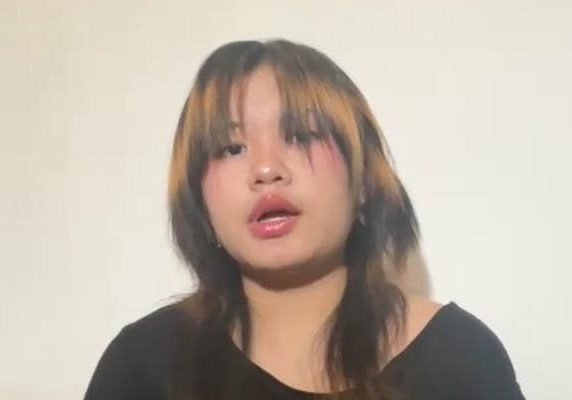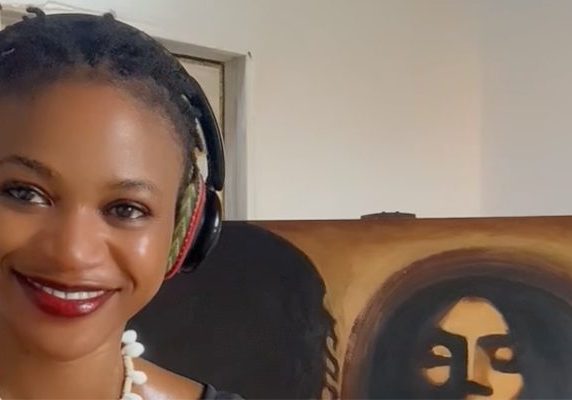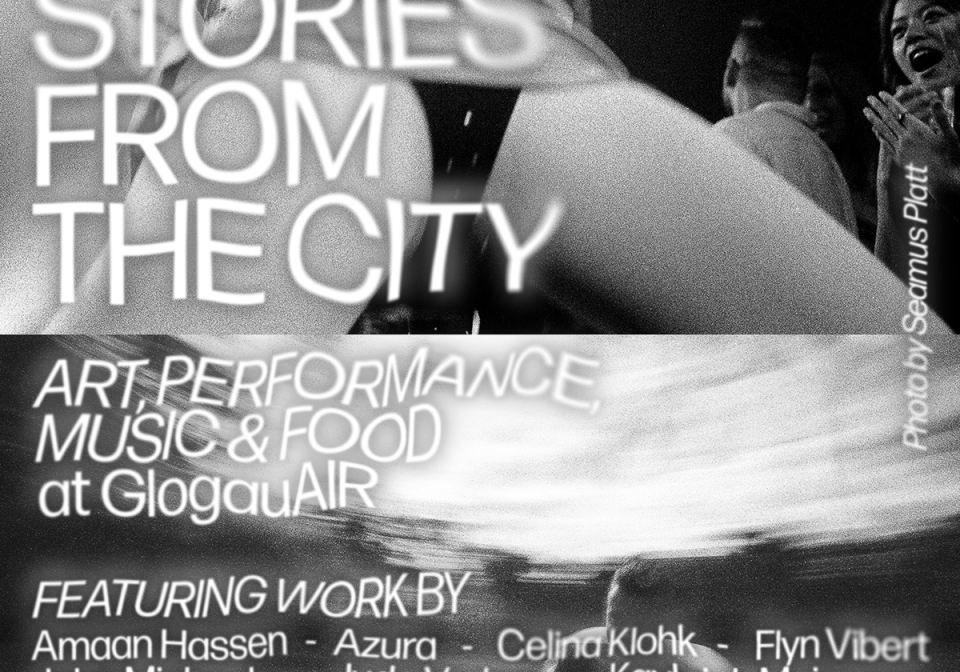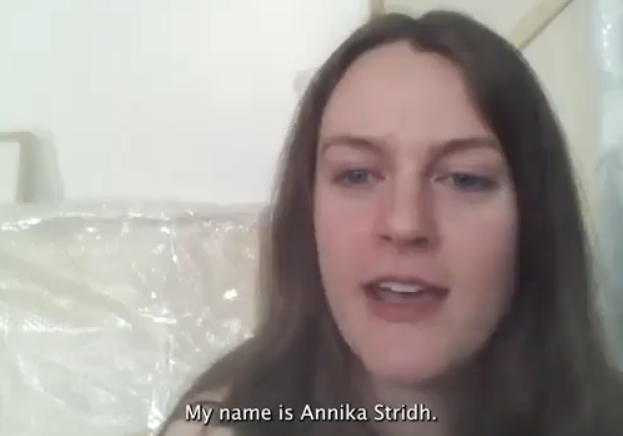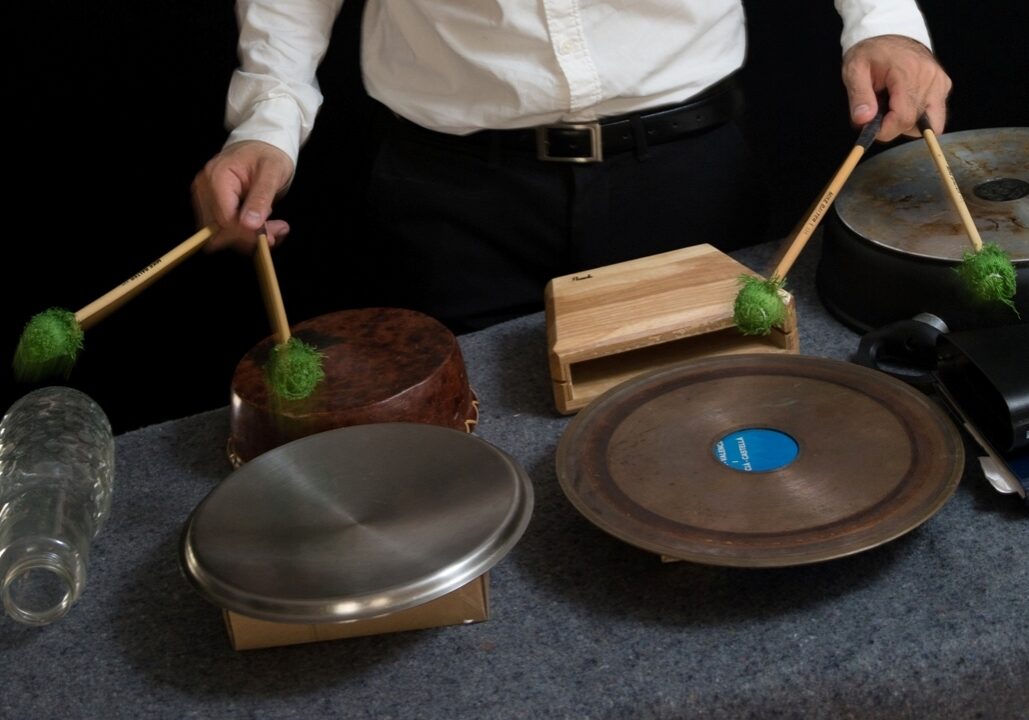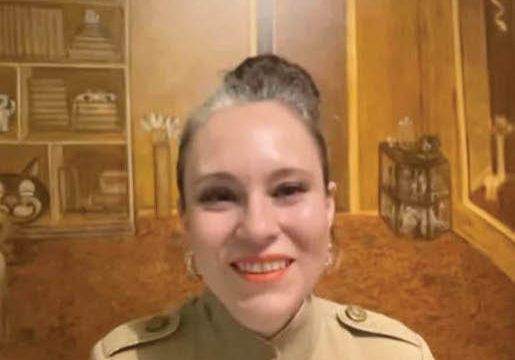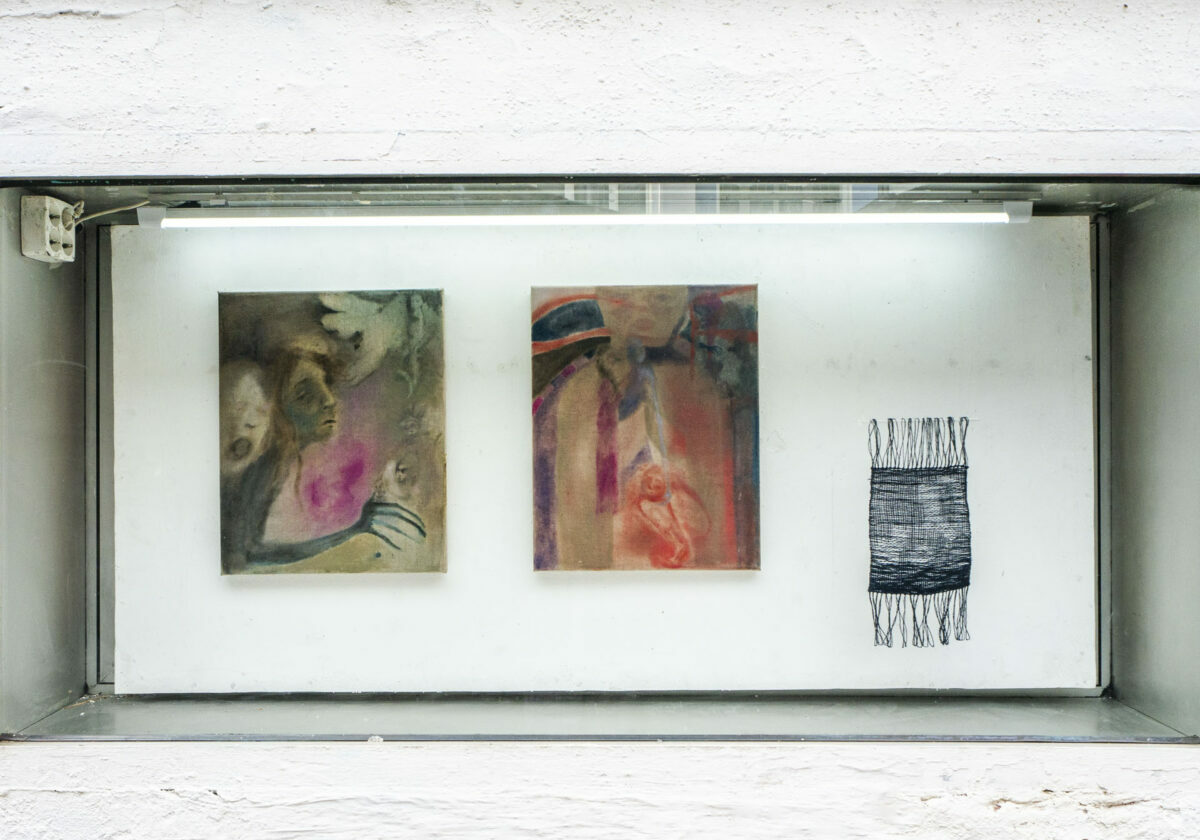Meet the Artist // Pauline Maure
She is a boundary-breaking artist blending film and performance. Her world is made of exaggerated characters, cinematic humor, and fiery narratives. Her latest project explores themes of narcissism and domestic conflicts.
Can you start by giving us an introduction about yourself and tell us about your background? You didn’t start out as an artist, right? So how did you start making art?
True. I started as a philosophy student, but then I switched to art philosophy, so art was always an interest of mine. Then I tried a bunch of different jobs until I got a burnout. That’s how I decided to really commit to film first, so I attended a tiny film school and then studied video art in Italy. Everything was quite random. I applied to the Italian university without even speaking Italian, so I arrived and I was the dummy of the class, I couldn’t understand anything. But then I learned Italian, so it was nice. Since then I’ve been doing it and struggling, but I think the struggle is part of the process for me. For example, money-wise it’s difficult, but it just confronts you to how motivated you are because I think that if I keep going, it proves that I really want to do it.
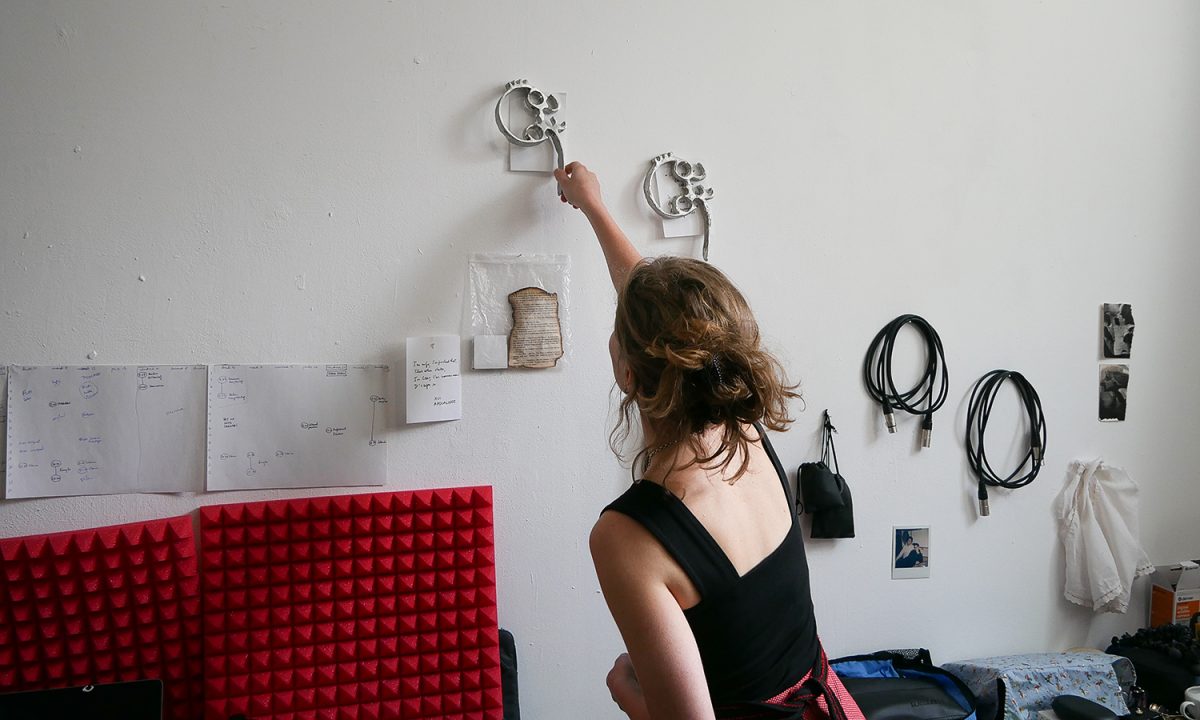
Can you tell us more about your practice? What’s your process for making a film?
Because I do film, video is the most visible part, but for me writing is my main activity. I was writing poems already as a kid and my grandpa read them to his friends. It was very cute and it was the first time that I had someone support me for something. The most important part of my work is writing. So, I consider even movies as texts. My process is basically cutting. For me this action really connects everything I do. Because you cut film, you cut fabric. Even when I was doing ceramics, I would remove rather than
add. It’s all about deleting stuff rather than adding stuff. I usually write a lot and then I take a
lot away. Then only the most essential remains. Or at least that’s what I’m trying to do. With film it’s quite similar. Also, I am not doing it in the correct way. Usually film is very procedural in the way you write the story, you gather the team, you shoot, you edit. I like to do it backwards or to do it in different ways. Sometimes it doesn’t work, but for me it’s more of an exploration in that way. For some reason, this also connects to a text I really love, like I really see the art I do as a melting process. It is like everything is frozen and it’s just melting until there is only the stone underneath. I’m looking for the stone.
Do you have any anecdotes that had an impact on your career?
Yes, I think the most joyful moment was when I was in lockdown in Spain with my two friends who are actors and artists. It was lockdown time so in order to cross a region you needed a reason, so this all actually started as a joke. They invited me as part of a production company, as a filmmaker, but there was no real plan to make a movie. Then when I arrived, I decided I was going to do it. It was in Andalusia, and they used to shoot a lot of Westerns there and I just started making this Western. It was the most spontaneous, joyful experience. It was very minimal, because of the lockdown, and it was only the three of
us, carrying gear on top of mountains and through very, very rocky environments. It was simple, yet amazing.
How did you develop your interest in Western movies?
It’s a bunch of things. First, because my ex loved it. It’s not the main reason, but it’s one of them.
Actually, it’s weird, because I don’t really like Westerns. I mean, I obviously don’t like the racist, misogynist part of them. But I love the visuals, because I’m really drawn to dry places, mountains, deserts. I love the landscape. I love their very lonely characters that have sometimes zero psychological background. You don’t know exactly what they feel or what they’re looking for. And I love the looks they have. I love how sweaty they are. I love the contrast between extremely wide shots and like super close up on just the eyes,
I like how time feels elastic in Westerns. For example, a gunfight is very fast, you shoot people really fast, but in movies, it is something that becomes super elastic, they stare at each other forever before they actually shoot. I really like this kind of distortion. Also, we think that they are action movies, but they’re actually very contemplative. There’s a lot of landscape in them. Moreover, I bought a book when I was a child and it was about fairy tales or something like that. There was a little note that was cut out from a newspaper about a TV program that was cut out for a film. The film title is High Noon in English, but in French it’s Le train sifflera trois fois. It means “the train will whistle three times”. It’s actually a Western. But I didn’t know what it was and I was really intrigued. I was really wondering what that movie was.
Then I remembered that way later. I think it kind of influenced me in a way. And now I have very megalomaniac thoughts like cows and horses. I don’t know how far I can go. For me, it’s not so important to actually find it. Sometimes you find derivatives. For example, every time I’m posting something about my research for a cow, some friend is like “I can be the cow”. I also like having humans acting as cows.
What are the main inspirations in your work?
Words. I love to know the history of words and some of them have really crazy histories. They move from one domain of life to another. I don’t know how it is in English, but in French, we say “word families”. I like this idea that they’re connected in family trees somehow. I am also inspired by what they evoke and the translation between languages. It’s so full of potential. From one word, you can imagine so many images and stories and objects. I think words are my first love. When I was a kid, I was collecting words. Actually, I was not a good reader. I don’t read. That’s why I like poetry, because it’s so short. But when I was a kid, I would read the dictionary and highlight the words I liked.
What is your relationship with the art world? And what is your goal when you are making
art?
I don’t think I fit in, because I’m really bad at marketing. I don’t like the idea that you have to have one identity that’s clear and fits into a box. I’m not good with that. I also really love to do amateurish stuff, because I think there is so much freedom. I just struggle with the difference between professional and amateur, because for me, we are all amateurs in a way. At the same time, I still want my movies to be seen, and I don’t do them for myself. I want to show them. I’m still a bit of a teenager. I don’t want to do the serious part, but I still want to be considered serious.
Why did you join this residency?
Because I was in love with a guy from Berlin. And I was like “what better way to follow him than to apply for a long-term residency in Berlin?” That’s the truth. But I can come up with a better answer. I asked my friends living here what residency they would recommend in Berlin. Also, a friend from Porto was also in GlogauAIR, Clara. Moreover, the building looks cool.
How are you finding it right now? What do you think about living with artists and sharing
a space?
I really love the concept of residencies for living with artists. I think it’s beautiful and comforting, but not too comforting. You get very productive because it’s not competition, it’s emulation. Just being with other artists who have different or same struggles is productive and we’re all in it together in a way. I like how we do very different stuff, but we still do it together. It just makes me happy, and it’s very fun.
What about Berlin as a city? Is it having any influence on your work?
To be honest, I feel like there’s a pressure to be free and to be cool that I really do not like that much. I’ve not been here for too long, and I don’t want to be categorized, but there is something about it that I feel like the unconventionality became conventional. I’m really struggling with the randomness of the architecture here. I’m used to really old cities and I love them because they can be super boring and dead, and they have a lot of problems, but it feels like the streets are this way because the force of history pushed them to be like that. And here it’s so vast, and sometimes buildings are so different and visually clash with each other and I am really struggling because sometimes I’m looking at the landscape, especially from the train, and I think “how did that happen?” and it’s troubling me. But I love the nature, the greenery. And you can be free for sure, but sometimes I feel like it’s not that you can be free, it’s that you have to be free and I think that maybe I’m fine being an old lady from the South. I’m not sure I can survive here. But it’s great for the art and everything, for sure. It’s also good because it’s very productive and you actually make stuff here.
What are your plans after the residency?
My dream is to shoot a massive movie in the desert. I don’t know when this will happen. Apart from that, I really don’t know. I usually make my decisions according to people.